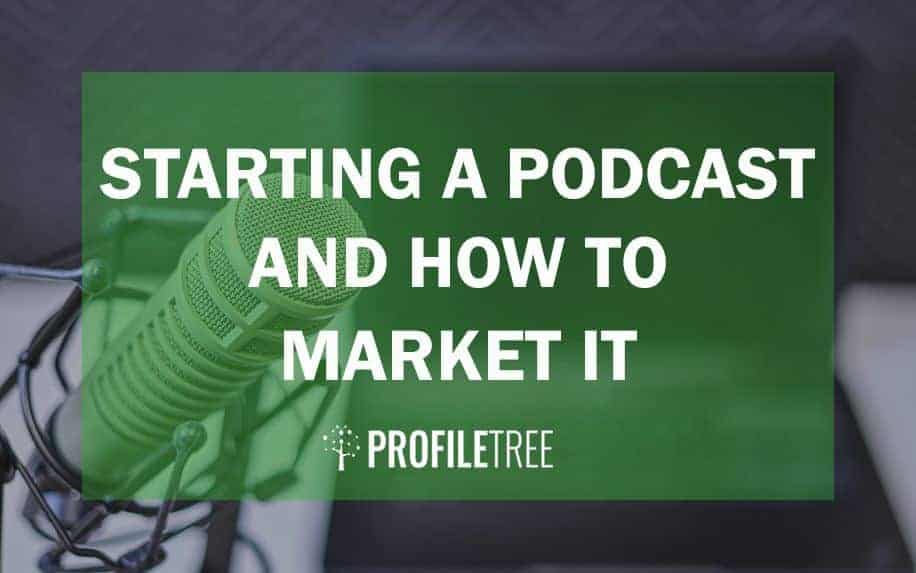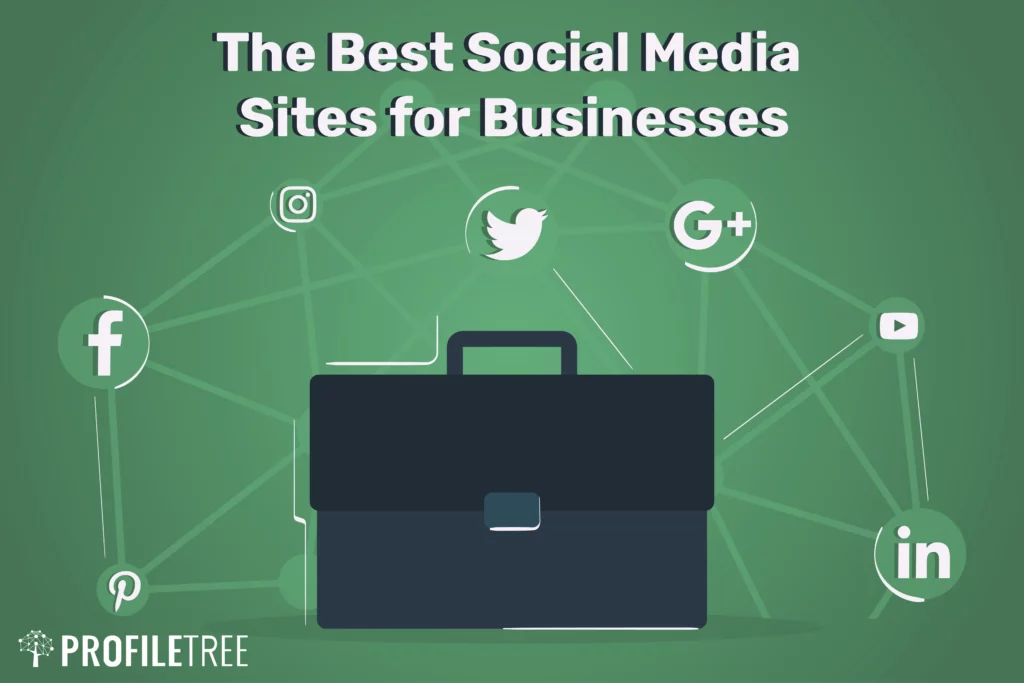Starting a podcast is easier said than done in today’s saturated market, but the continued growth in podcast popularity shows tremendous ongoing potential. With over 1 million active podcasts and over 100 million monthly listeners now in the US, podcasting continues to surge as an powerful audio medium. As more and more people explore how to start a podcast to share their voice, perspective, passion or expertise, the barriers to entry are lower than ever before.
However, while anyone can start a podcast, launching a successful show that stands out requires careful planning across factors ranging from idea generation to recording logistics to promotion tactics. This comprehensive guide will equip aspiring hosts with the best practices across the key steps required to start a podcast. From assessing ideas, obtaining the right equipment, structuring engaging content, and devising growth strategies, we outline everything needed to set your show up for success.
Whether you want to inform, entertain, discuss topics you are passionate about or even grow an audience and revenue stream, this guide provides aspiring hosts with the information and tips needed to start a podcast in today’s crowded confidently.
Podcasts aren’t that different from any other kind of radio programme: the only difference is that podcast creators distribute the episodes of their programme over the Internet for everyone to listen to rather than using a traditional radio station.
Podcasting, by nature, is done in a ‘do it yourself’ format, therefore they vary greatly in quality. Some are recorded in professional studios, others in nice home studios with great microphones. Meanwhile, there are others recorded with a mobile phone or with a cheap microphone.

Some are hosted by people with great radio voices; others are hosted by people who are understandably nervous. After all, it’s still worth listening to a podcast by someone who is doing it because they love the topic they’re talking about.
Podcasting is now serious business, and for some bloggers, the traffic from search engines like iTunes is catching up to the likes of Google. Supplementing your regular written content with an audio podcast show can be a very smart idea.
Table of Contents
What are Podcasts?
So: what are podcasts and how can they benefit you? According to Apple, podcasts are “usually original audio shows, consisting of individual episodes on a variety of topics which millions of people around the world can enjoy anytime and anywhere.”
Podcasts can be downloaded and listened to either on a computer or any Mp3 player. The term, which was coined in 2004, is a blend of the words ‘iPod’ and ‘broadcast’. People commonly describe podcasts as on-demand internet radio talks.
These tracks are typically audio recordings of a conversation between a host and a guest speaker, just like the ones you can listen to on the radio. A podcast can also be a single monologue of a person sharing his or her thoughts.

Podcasts Topics
The topics of the content can practically be anything from business and marketing to travel and yoga and so on. The most popular topics for podcasts vary from travel and cooking to education and lifestyle. The key to podcasting is finding a topic to cater to a large demographic.
On the other hand, you can find a more specific topic and cater to a niche demographic. This strategy would provide you with loyal listeners, though not the larger group of listeners. Anyone with a computer and an internet connection can make and freely distribute podcasts, making it an inclusive and vibrant medium.
In the early days of podcasting, it was largely an amateur concern – the internet’s answer to CB radio. However, in the last few years, dozens of major broadcasters, magazines, and news organisations have rolled out large-scale podcast operations of their own.

How to Start a Podcast?
If you are thinking of starting a podcast, there are some questions and aspects that you need to think about.
Podcast Direction
First, you have to ask ‘why do you want to make a podcast?’. Are you a freelancer, a business or a marketing manager? If so, you might have identified podcasting as a great way to build authority. It can also provide your customers and target audience with valuable and entertaining content.
If you are also looking for a hobby type podcast, this might mean you’ll be creating a show in your spare time. And the subject will be something that you’re passionate about. In either case, you can identify your ‘why’ here. That’s important to keep in mind, so that you can stay motivated, even when you’re finding it difficult to get a show out.
Podcast Audience
The next step is who are you creating this for? Who are you targeting and who is your audience? This is the most vital question you can ask. If you are coming from a business point of view, your podcast would be targeting people interested in your business and everything related to your industry.
If you are looking to create a hobby show, you should look for a topic you are passionate about. You can create content for as long as you would like. Your listeners will follow your podcast because they share the same passion.
The next step of your podcast plan is to create a brand identity for your podcast. Starting with a clever name, you should find one that is easy to relate to and easy to search.
Lastly is to create the podcast episodes. This is the part that matters most for listeners because this is the reason they are looking for you.

Are Podcasts Considered Social Media?
Social media is defined as forms of electronic communication such as websites for social networking, through which users create online communities to share information, ideas, personal messages, and other content. The truth is, social media can be defined a lot of different ways and in many different forms.
So can you consider podcasts as part of the social media branch? Some would say because it is closer to radio than to a social media outlet.
There are so many unique variations of social media that it cannot just be rolled into ‘social networking sites’. The podcast in itself is not part of social media, just like a website by itself is not part of social media.
The way a podcast can be added to the social media realm is by adding elements that make it social. A great example is the way blog talk radio has features that allow you to comment and interact with the show while it’s live.
Also, with comment sections and sharing options, podcasts are gaining more from the social aspects as listeners can now interact with podcasters and state their opinions on what they want.
At the end of the day you can make podcasts sociable by incorporating aspects to make it intuitive. The argument still may remain for some if a podcast should be considered social media, but the truth is that your podcast can become whatever you and your listeners want it to be.

How Do I Market My Podcast?
When it comes to advertising and marketing your podcast, there are several methods to bring in more listeners. One method is using keywords. This will help those searching for podcasts come across your work.
Being creative with your captions and titles may seem like a good idea, but sometimes it is best to keep it simple. Put yourself in the shoes of your listeners who are searching.
Another way would be attracting the listeners is from your description. Keep in mind when writing your descriptions that not to give any spoilers away. There is nothing wrong with attracting your listeners with an attractive description. Just don’t forget the keywords.
You can submit your podcast to every possible directory. The more people hear about your podcast, the more listeners come in. Look up some of the directories and submit yours to it for searchers to find your show. Some examples are to Apple Podcasts, Google Podcasts, Spotify, TuneIn, and Stitcher.
You can also use social media to connect with your listeners. Being creative on your social media platforms will bring in new listeners as well as keep you in touch with your loyal listeners. Don’t forget to use strategic hashtags.
Another technique is to join some Facebook groups and ask the admin if you can introduce yourself and your show. If they allow it, put a link to your website or hosting site, as well as a link to iTunes. It’s important to make things as hassle free for your listeners as possible.
You can also attract other listeners and widen your demographic by inviting guests for an interview. Maybe try teaming up with another host and do an audio swap, i.e. a clip of your show is featured on theirs and vice versa.

At a time when most social media platforms emphasise brevity, podcasting might appear intimidating. You might fear that your new channel doesn’t submit new episodes frequently enough, or that one episode is wildly unique from the tone or format of another.
However those organisations which are fearless enough to enter the world of podcasting have already discovered one of the medium’s invaluable lessons: starting a podcast is more flexible than you might think.
Most of all, it can make your nonprofit or affiliation accessible and human – it is your voice and only you can control the narrative. You should also check out this article on how to start a podcast 101.
Launching Your Podcast: A Comprehensive Guide for Aspiring Voices
The airwaves are buzzing with captivating stories, insightful discussions, and infectious laughter. Welcome to the vibrant world of podcasting, where anyone with a passion and a microphone can captivate ears and build a community. But navigating this audio odyssey can seem daunting, especially for first-time broadcasters. Fear not, eager voice weavers! This guide will equip you with the tools and techniques to launch your podcast and embark on a fulfilling journey.
Finding Your Niche and Audience:
Before you hit record, take a moment to define your podcast’s identity. What ignites your passion? What unique perspective can you offer? Research your target audience – who are you speaking to, and what kind of content would resonate with them? Answering these questions will help you carve out a distinct niche and tailor your format, whether it’s a solo narrative, an engaging interview series, or an informative panel discussion.
Planning for Impact:
Preparation is key to captivating your audience. Craft episode outlines to ensure a focused and cohesive flow. If interviewing guests, research their expertise and prepare insightful questions. Consider scripting key points for solo episodes, but leave room for organic conversation to weave its magic.
Building Your Studio Arsenal:
Investing in quality audio equipment doesn’t have to break the bank. For beginners, an affordable USB microphone and free editing software like Audacity can work wonders. As you gain experience, explore professional-grade mics like the Rode NT1-A or Shure SM7B, and consider software like Adobe Audition for advanced editing capabilities.
Mastering the Craft:
Editing isn’t a sign of weakness, it’s a superpower! Use your software to remove dead air, trim unnecessary filler words, and enhance audio clarity. Music and sound effects can add atmosphere and punctuate your narrative. Remember, less is often more – aim for a natural conversation flow instead of over-polishing.
Sharing Your Voice with the World:
Once your masterpiece is polished, unleash it to the world! Submit your podcast to major directories like Apple Podcasts, Spotify, and Google Podcasts to maximize visibility. Utilize social media platforms to build hype, share snippets, and engage with listeners. Collaborate with other creators for cross-promotion and tap into new audiences.
Building a Loyal Community:
Your listeners are your podcast’s heartbeat. Foster a strong community through interactive elements like Q&A sessions, polls, and listener shoutouts. Encourage feedback and respond to comments – let your audience know they’re valued! Consider hosting live recording sessions or creating online groups for deeper engagement.
Monetisation Magic:
Podcasting can be your passion and your paycheck. Explore diverse monetization strategies. Partner with sponsors whose values align with your content. Promote relevant affiliate products, offer exclusive premium content for paying subscribers, or accept listener donations. The key is to be transparent and offer value in exchange for support.
Accessibility for All:
Open your podcast to the world! Utilize services like Rev or Otter.ai to create transcripts for easier comprehension. Consider translating your content to reach a wider audience. Implement closed captions to cater to hearing-impaired listeners. Inclusivity is a powerful way to expand your reach and build a truly diverse community.
Final Notes On Launching:
Remember, podcasting is a journey of continuous learning and refinement. As we stated at the beginning of this article, starting a podcast is easier than you think! Don’t be afraid to experiment, iterate, and adjust your approach based on audience feedback. Consistency is key – stick to your publishing schedule and keep your listeners engaged. Above all, have fun! Infuse your passion into your voice and let your unique personality shine through. Premium podcast advertising companies recommend submitting your podcast to every possible directory.
Bonus Tips: Leverage SEO strategies to optimize your podcast for search engines. Research relevant keywords and include them in your titles, descriptions, and episode tags. This will help listeners discover your content more easily. Encourage listeners to subscribe and leave reviews on podcast directories. This boosts visibility and attracts new audience members.
Equipping Yourself for Podcast Glory: Tools & Techniques for Audio Excellence
Welcome, aspiring podcasters! Whether you’re a seasoned storyteller or a newbie with a microphone itching to be used, crafting a captivating podcast requires the right tools and know-how. So, let’s dive into the essential equipment, software, and techniques to unlock your inner audio wizard and build a thriving podcast.
Gear Up for Great Audio:
- Microphones: Your voice is your instrument, so choose wisely! Dynamic mics work well for solo podcasts, while condenser mics offer richer detail for interviews or multi-host setups. USB mics are convenient, while XLR mics offer greater flexibility and control. Popular choices include the Rode PodMic, Audio-Technica ATR2100, and Shure SM7B.
- Headphones: Monitor your audio in real-time and avoid audio bleed with a comfortable pair of closed-back headphones. Consider options like Audio-Technica ATH-M50x or Sony MDR7506.
- Audio Interface: For XLR mics, an audio interface acts as a bridge between your mic and computer, ensuring pristine audio capture. Look for features like low-latency monitoring and phantom power (required for condenser mics). Focusrite Scarlett 2i2 and Behringer U-phoria UMC204HD are popular picks.
- Pop Filter: Tame those plosive “P” and “B” sounds with a pop filter. It’s a simple yet essential tool for preventing distracting audio pops.
- Microphone Stand: Keep your mic stable and avoid unwanted noise with a sturdy microphone stand. Boom arms offer flexibility and arm-mounted shock mounts further reduce handling noise.
Software Sweetness:
- Digital Audio Workstation (DAW): Your audio editing playground! Free options like Audacity and GarageBand offer basic editing tools, while paid options like Adobe Audition and Reaper Pro unlock advanced features like multi-track recording and sound effects libraries.
- Recording Software: Some DAWs include recording functionality, but dedicated recording software like Riverside.fm or Zencastr offer features like remote recording, cloud storage, and automatic transcription.
- Intro/Outro Music and Sound Effects: Create a distinct brand identity with royalty-free music and sound effects from platforms like Artlist or Epidemic Sound.
Crafting Captivating Episodes:
- Record in a Quiet Space: Eliminate unwanted background noise. Consider soundproofing materials or recording in a quiet room.
- Level Up Your Audio: Optimize microphone gain, use noise reduction tools, and add compression for a consistent and polished sound.
- Embrace the Edit: Don’t be afraid to trim silences, remove mistakes, and enhance your flow with strategic editing.
- Script or Outline?: Choose a method that works for you. Scripts offer structure, while outlines allow for spontaneity.
- Engage Your Audience: Talk conversationally, ask questions, and interact with your listeners to keep them hooked.
- Variety is the Spice of Podcasts: Incorporate interviews, guest segments, storytelling elements, and different editing styles to keep your show fresh.
- Publish and Promote: Choose a reliable podcast hosting platform like Buzzsprout or Anchor, submit your podcast to directories like Apple Podcasts and Spotify, and actively promote your show on social media and relevant online communities.
Guest Powerhouse: Attract, Interview, and Monetize
Guests can be the wind beneath your podcast’s sails, injecting fresh perspectives, engaging your audience, and even unlocking monetization avenues. But how do you snag the right guests and transform interviews into captivating, money-spinning conversations? Dive deeper with these strategies:
Guest Magnet:
- Target the Right People: Identify individuals relevant to your niche and audience, with expertise or stories that complement your content. Look for authors, experts, influencers, thought leaders, or even fascinating individuals with unique experiences.
- Craft Compelling Invitations: Personalize your outreach, highlighting what excites you about their work and how their presence could benefit your listeners. Offer value by showcasing your podcast’s reach and potential impact.
- Utilize Guest Booking Platforms: Consider platforms like Podmatch or Matchmaker.fm to connect with potential guests and streamline the outreach process.
Interviewing Ace:
- Pre-Interview Prep: Research your guest, prepare insightful questions, and craft an interview outline that flows naturally. Discuss expectations and preferred interview styles beforehand.
- Active Listening & Engagement: Be present, ask follow-up questions, and avoid pre-scripted rigidity. Engage in genuine conversation, letting the guest’s expertise shine through.
- Humorous & Human: Inject humor, anecdotes, and personal touches to create a relatable and engaging atmosphere. Make your guest feel comfortable and encourage their natural storytelling.
- Edit with Intention: Tighten the conversation without losing its essence. Trim silences, remove stumbles, and add sound effects or music strategically to enhance the flow.
Monetization Maestro:
- Sponsorships: Partner with brands relevant to your audience and niche. Offer pre-recorded ad reads, sponsor mentions within episodes, or even dedicated sponsor segments.
- Premium Content: Offer exclusive bonus episodes, extended interviews, or in-depth tutorials for patrons on platforms like Patreon or Buy Me a Coffee.
- Live Events: Organize paid-access live podcast recordings or Q&A sessions with your guests, offering listeners a chance to directly interact with the stars of your show.
- Affiliate Marketing: Promote relevant products or services within your episodes and earn commissions for every purchase made through your unique affiliate link.
Remember, every guest and monetization strategy is unique. Choose what aligns with your niche, audience, and long-term vision. Continuously experiment, analyze results, and adapt your approach for optimal guest booking, interview excellence, and podcast revenue streams.
Industry Statistics:
The UK podcasting scene is buzzing! Over 18 million Brits tune in monthly, a 35% increase since 2019, showing no signs of slowing down. From commuting on the Tube to chilling in the garden, podcasts are weaving themselves into daily routines. The genre landscape? It’s as diverse as a London park on a sunny day! True crime captivates Gen Z, meditation helps millennials unwind, and educational podcasts fuel curious minds of all ages. And the cherry on top? Advertising revenue in the UK podcasting industry is expected to reach a whopping £85 million by 2025, proving its undeniable influence. Technology has become podcasting’s best mate, with smartphones and smart speakers making it easier than ever to listen on the go or at home. So, grab your headphones and get ready to explore, the UK podcasting world is brimming with exciting possibilities!
Expanded Promotion Strategies:
Want to get your podcast heard from Land’s End to John o’ Groats? Think beyond traditional methods! Short, snappy teasers on TikTok and Instagram Reels are like mini trailers for your episodes, perfect for hooking listeners in seconds. Imagine a hilarious banter snippet with your guest, a dramatic cliffhanger from your latest episode, or a visually captivating soundbite that sparks curiosity. Partnering with relevant UK influencers is like tapping into a hidden marketing goldmine. Think YouTube stars, niche bloggers, or even complementary podcasters with similar audiences. But don’t underestimate the power of targeted Facebook and Twitter ads! Tailor your campaigns to your podcast’s unique voice and UK audience, ensuring your message resonates with the right ears. And in the age of Alexa and Google Home, voice search SEO is no longer optional. Optimize your descriptions and episode titles with natural language, and soon, your podcast might be the answer to someone’s “tell me something fascinating” query. Don’t forget the power of collaboration! Guest appearances on other UK podcasts or joint episodes with fellow creators can expand your reach beyond your own channels. Remember, teamwork makes the podcasting dream work!
Podcasting Challenges and Solutions:
The podcasting journey isn’t always a walk in the park. From dodgy Wi-Fi ruining recordings to the pressure of consistent content creation, challenges lurk around every corner. But fear not, intrepid podcaster! Battling burnout starts with a sustainable routine. Schedule recording sessions, plan content calendars well in advance, and delegate tasks where possible – prioritize your mental well-being to keep the creative flames burning. Building a loyal audience requires more than just great content; it’s about fostering a sense of community around your podcast. Respond to listener comments, host Q&A sessions on Facebook Live, and encourage interaction through social media polls and questions. Monetization might seem like a jungle, but understanding your UK audience and value proposition is the key to unlocking sponsorships and other revenue streams. Remember, your unique voice and content hold value, so don’t be afraid to confidently showcase what makes your podcast special. Finally, the podcasting landscape is constantly evolving. Stay adaptable! Respond to changing listener preferences, explore new formats like video podcasts, and keep your finger on the pulse of industry trends. By embracing this agility, you’ll ensure your podcast stays relevant and captivating in the ever-changing world of audio.
Accessibility Features:
Inclusivity matters! Make your website a welcoming haven for everyone by embracing accessibility features. Screen reader compatibility ensures your content reaches listeners with visual impairments, while full transcripts transform spoken words into easily digestible text. Don’t forget the power of descriptive alt text for images – paint a vivid picture with words for those who rely on screen readers. Remember, keyboard accessibility is crucial for users with mobility limitations, so ensure your website navigates smoothly without a mouse. And for those with visual challenges, adjustable text sizes and high-contrast themes are like a gift to their eyes. By embracing these features, you’re sending a powerful message – your podcast welcomes everyone, no exceptions.
Podcast Industry Growth:
- Podcast listenership continues to rise, with 62% of Americans aged 12+ having listened to a podcast in 2022, up from 57% in 2021 (Edison Research).
- Over 2.5 million podcasts are currently listed on Apple Podcasts alone (The Podcast Host).
- 82 million people in the US tuned into podcasts in 2021, with projections exceeding 100 million by 2024 (Statista).
- 41% of Americans listen to podcasts monthly, and 28% listen weekly (Edison Research).
Audience Trends:
- 55% of 12-34 year olds listen to podcasts monthly, compared to 21% of those 55+ (The Podcast Host).
- Men are slightly more likely to listen to podcasts than women (53% vs. 46%) (Oberlo).
- Entertainment remains the most popular podcast genre, with three in five listeners tuning in for fun (Oberlo).
Monetization and Engagement:
- US podcast advertising revenues are expected to surpass $2 billion in 2023 (Oberlo).
- 28% of listeners have purchased a product they heard about on a podcast (Oberlo).
- Building a community is crucial for success, with social media, interactive platforms, and listener feedback playing vital roles.
Accessibility and Diversity:
- Making your podcast accessible to various audiences, including non-English speakers and individuals with disabilities, is essential.
- Translation services and closed captions can significantly expand your reach.
With this guide in your toolkit, you’re well on your way to becoming a captivating voice in the vibrant world of podcasting. Now go forth, create, and let your story resonate!
Marketing & Promotion Symphony: Build an Audience, Conquer Challenges
Imagine crafting the most captivating podcast in the universe, only to discover silence – crickets, tumbleweeds, the deafening absence of listeners. Your podcast deserves an audience, so let’s dive into effective marketing and promotional strategies to amplify your voice and build a loyal fanbase:
Channel the Hype:
- Social Media Symphony: Embrace the Big Three – Facebook, Instagram, and Twitter – to share clips, snippets, guest teasers, and engaging visuals. Utilize relevant hashtags, participate in community conversations, and run targeted ads to reach your ideal audience.
- Website & RSS Feed: A dedicated website acts as your podcast’s central hub. Embed episodes, showcase guest features, and integrate with your RSS feed to ensure easy subscription across platforms.
- Email Marketing Masterpiece: Build an email list and craft captivating newsletters highlighting new episodes, guest interviews, and engaging podcast-related content. Offer exclusive behind-the-scenes insights or early access to bonus materials.
- Content Collaborations: Partner with other podcasters, bloggers, or YouTubers in your niche for cross-promotion opportunities. Guest appear on their platforms, co-host episodes, or collaborate on content to access new audiences.
- SEO Serenade: Optimize your website and podcast descriptions with relevant keywords to improve search engine rankings. Encourage listeners to leave reviews on major platforms to boost visibility.
Conquering Common Challenges:
- Standing Out in the Crowd: Differentiate yourself by focusing on a unique niche, injecting your personality into the show, and consistently delivering high-quality content. Offer something no other podcast does!
- Breaking Through the Noise: Promote your podcast consistently across multiple channels, engage with your audience, and offer valuable content snippets to pique their interest. Don’t be afraid to get creative!
- Monetization Maze: Focus on building a loyal audience first. Prioritize growing your listenership before diving headfirst into aggressive monetization strategies. Offer value before asking for anything in return.
- Lack of Time & Resources: Prioritize! Schedule time for marketing and promotion alongside content creation. Utilize free tools and automation where possible, and consider collaborating with others to share the workload.
- Discouragement & Doubt: Everyone faces setbacks. Celebrate small wins, track your progress, and embrace constructive criticism. Learn from your mistakes and remain optimistic about your podcast’s potential.
Global Perspective:
The world is your oyster! Think beyond the UK and tailor your content to embrace different cultures and languages. Sensitivity to cultural nuances goes a long way – research your target audience, avoid stereotypes, and celebrate diversity. Don’t be afraid to explore topics with a global appeal, be it interviews with international guests or discussions of universal themes like climate change or mental health. Navigating media laws and copyright regulations might seem like a bureaucratic maze, but understanding the landscape in different countries is crucial for international compliance. Collaboration is your magic trick here! Partner with international guests, co-host episodes with foreign podcasters, or explore platforms with global reach like Spotify or Apple Podcasts. Finally, effective marketing and localization strategies are your passport to a wider, more diverse audience. Translate episode titles and descriptions, adapt your social media presence to different
FAQ: Starting a podcast
Q: How often should I promote my podcast on social media?
A: Aim for consistency over quantity. Post several times a week, but space out your content to avoid bombarding your audience. Experiment with different formats like audio clips, visuals, and text snippets to keep things engaging.
Q: What if I don’t have a big budget for marketing?
A: Many effective promotion tactics are free! Utilize organic social media reach, collaborate with other content creators, guest appear on other podcasts, and actively engage in online communities related to your niche.
Q: How can I overcome the fear of self-promotion?
A: Focus on providing value instead of selling. Share interesting aspects of your podcast, highlight guest expertise, and showcase snippets of engaging content. Your passion and excitement will naturally attract listeners.
Q: What should I do if I’m discouraged by low listenership numbers?
A: Don’t give up! Building an audience takes time. Analyze your listener demographics, experiment with different content formats, and actively seek feedback to understand what resonates. Celebrate small wins and learn from your setbacks.
Q: How can I deal with imposter syndrome as a new podcaster?
A: Focus on your strengths, value your unique perspective, and remember that everyone starts somewhere. Celebrate your progress, learn from experienced podcasters, and surround yourself with a supportive community.
Conclusion: Amplifying Your Podcasting Voice
Launching a podcast is an exciting journey, but building a thriving audience requires more than just recording great episodes. Effective marketing and promotion strategies are essential to break through the noise and connect with your ideal listeners.
By embracing the tactics and solutions outlined in this guide, you can master the art of building a loyal fanbase, conquer common challenges, and transform your podcasting passion into a vibrant community. Remember, consistency, creativity, and value are your allies in this audio odyssey. So, pick up your promotional megaphone, raise your marketing baton, and get ready to amplify your voice. The world is waiting to be captivated by your unique podcasting magic!
For more information or advice from experts in voice marketing, get in touch with ProfileTree today.


